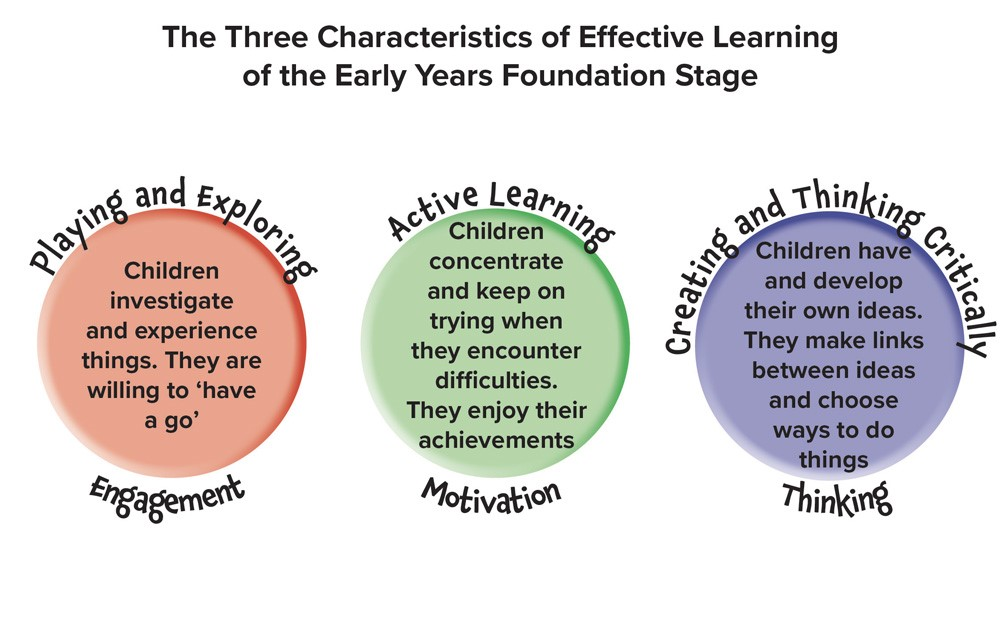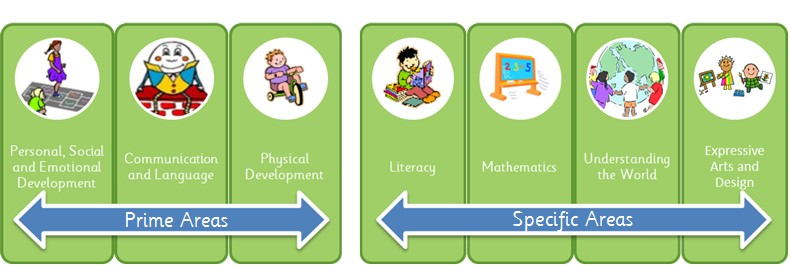‘Every child deserves the best possible start in life and the support that enables them to fulfill their potential. Children develop quickly in the early years and a child’s experiences between birth and age five have a major impact on their future life chances. A secure, safe and happy childhood is important in it’s own right. Good parenting and high-quality early learning together provide the foundation children need to make the most of their abilities and talents as they grow up.’
The curriculum intent for Crompton Primary aims to:
Curriculum in the Early Years Foundation Stage (EYFS)
The Early Years Foundation Stage (EYFS) sets the standards that all early years providers must meet to ensure that children learn and develop well and are kept healthy and safe. It promotes teaching and learning to ensure children’s ‘school readiness’ and gives children the broad range of knowledge and skills that provide the right foundation for good future progress through school and life.
A summary of the framework is outlined below:
Throughout the Nursery and Reception, we follow the statutory framework for EYFS, supported by non-statutory guidance set out in a document called Development Matters in the Early Years Foundation Stage.
Development Matters:


At Crompton Primary, we plan daily lessons and activities around these subjects. We set up areas of the classroom known as continuous provision. This is where our children spend the majority of their day. The areas are carefully set up to engage the children in appropriate learning for their age and interests.
There is currently 1 teacher, 1 Teaching Assistants and 1 Learning Support Assistant. The EYFS leader is a member of the Senior Leadership Team. The classroom is equipped with an interactive whiteboard. Each member of the team has an iPad to capture learning electronically using the online Tapestry platform. Children also have access to iPads to support their learning.
Our EYFS classroom has access to extensive designated outside areas. The outdoor area comprises of areas of learning including: Artists’ studio, mud kitchen, stage/music, water/sand world, story/writing/ reading den and a role play area, environmental area, bird watching & large construction space. Outdoor play is highly valued and activities outside compliment and reflects indoor provision. Children carry out activities and learning in other areas of the school such as the community kitchen, the hall, the whole school outdoor space, KS1 and KS2 playgrounds including the climbing equipment.
At Crompton Primary we acknowledge that the environment plays a vital role in supporting and extending the children’s development. We aim to create an attractive, welcoming and stimulating learning environment, which will encourage children to explore, investigate and learn through first-hand experience. We also aim to make it a place where children feel secure and confident and are challenged to develop their independence. Activities are planned for both the inside and outside environment. Children have the freedom to move between the indoor and outdoor classroom during child-initiated learning time.
Children have access to a wide range of equipment including construction materials, role play equipment, small world, sand and water equipment, art materials, musical instruments, ICT equipment, mark making materials, counting equipment, books, larger outdoor equipment and specialist PE equipment. All areas are carefully planned to reflect learning needs, the theme and children’s interests.
All children and adults are expected to take responsibility for the care of and use of resources and the environment and we believe that supporting the children and helping them to look after and respect their environment is a very important part of a child’s development. We encourage children to tidy up as they go through the day and we also have ‘Tidy Up Time’ before lunch and at the end of the day as this offers a valuable opportunity for talking, reading, problem solving, reasoning, counting and sorting activities.
We believe that developing a learning environment that allows the children to select their own resources is a crucial part of creating independent and curious learners. Adults support the children to select the things they need to follow their interest. Often when a new interest develops the adults will then adapt the environment and resources to support this thread of learning.
A long-term plan sets out our intent for the year and we acknowledge that there will be always flexibility within this in order to react to interests and development. Our team produce a weekly plan which outlines the learning intentions to be focused on in each area of learning and show how those activities and experiences will be delivered through ‘Adult Led’ and ‘Child Initiated’ learning opportunities. Planning is therefore constantly developed, adapted and evaluated through ongoing observations of child initiated or spontaneous activity and planned opportunities (indoors and outdoors). Assessment for learning is crucial in response to children’s developmental needs and interests. The learning intentions are also informed by a thorough knowledge of child development enhanced by reference to the ‘Development Matters’ document.
Join our mailing list to receive updates on new arrivals and special offers.